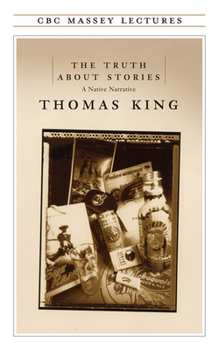The Truth about Stories
Select Format
Select Condition 
Book Overview
Winner of the 2003 Trillium Book Award
"Stories are wondrous things," award-winning author and scholar Thomas King declares in his 2003 CBC Massey Lectures. "And they are dangerous."
Beginning with a traditional Native oral story, King weaves his way through literature and history, religion and politics, popular culture and social protest, gracefully elucidating North America's relationship with its Native peoples.
Native culture has deep ties to storytelling, and yet no other North American culture has been the subject of more erroneous stories. The Indian of fact, as King says, bears little resemblance to the literary Indian, the dying Indian, the construct so powerfully and often destructively projected by White North America. With keen perception and wit, King illustrates that stories are the key to, and only hope for, human understanding. He compels us to listen well.
Related Subjects
Americas Biographical Biographies Biographies & History Biography & History Canada Canadian Cultural Essays Essays & Correspondence Ethnic & National First Nations Folklore & Mythology Historical History & Criticism Literary Literature & Fiction Modern (16th-21st Centuries) Mythology Mythology & Folk Tales Native American Native American Studies Politics & Social Sciences Social Science Social Sciences Specific Demographics





